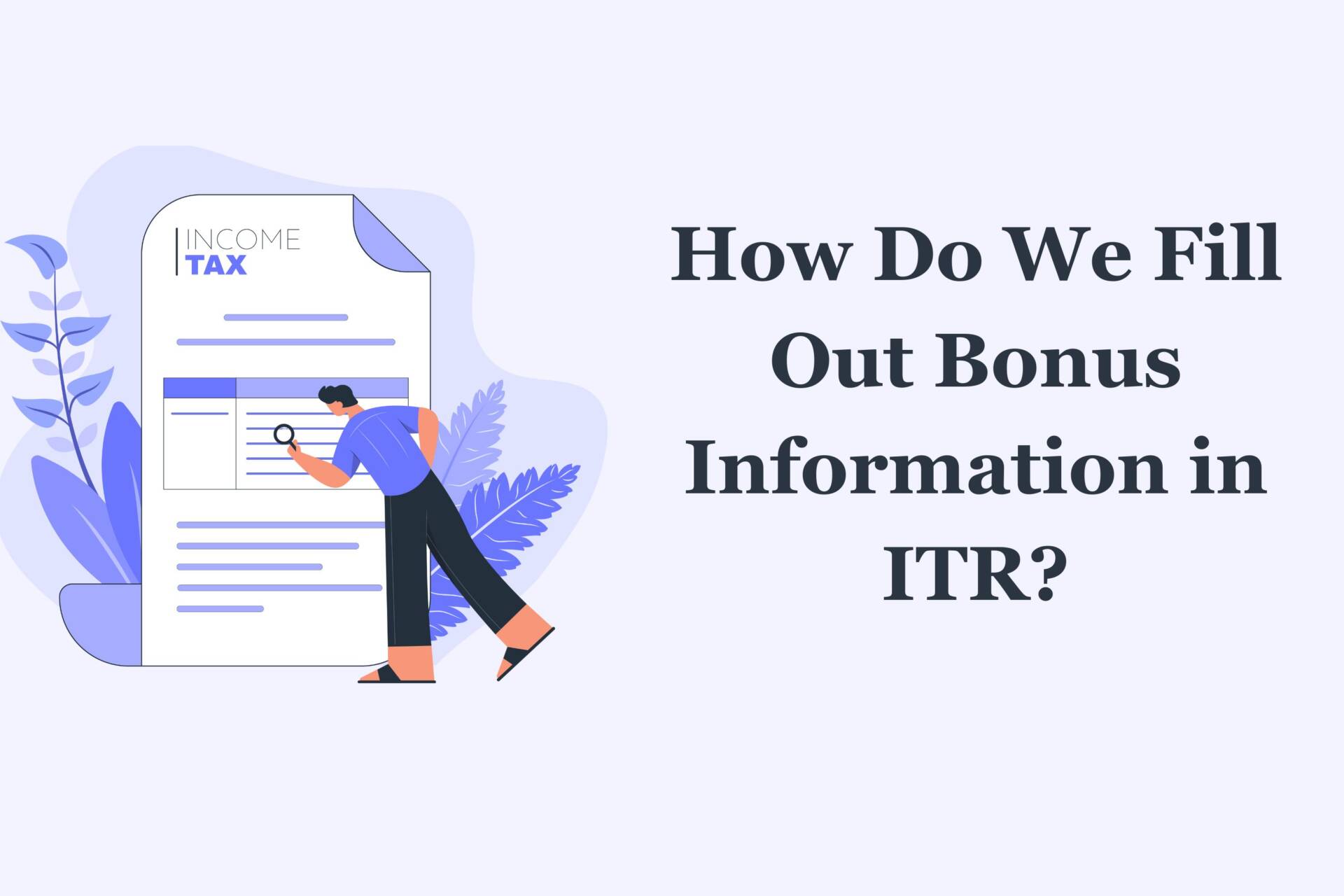How Do We Fill Out Bonus Information in ITR?
Introduction
Festivals are anticipated by the majority of individuals for a variety of reasons. In the case of salaried employees, it is for the bonus that their companies provide when festivals approach. A salary is made up of numerous components such as net salary, gross income, bonus, incentives, and so on. Employees receive bonuses as a sign of appreciation for their great work in the preceding year, when the employer wishes to share the profit produced by the business in the preceding year, or simply as a token of celebration during festivals. As an extra source of income, issues about the taxability of such incentives frequently emerge.
Furthermore, salaried taxpayers must record any income other than wages in their Income Tax Return (ITR), such as a bonus from their company, a prize, a lottery, and so on. Many salaried taxpayers are frequently unsure how to fill up the facts of their bonuses received on the ITR. All target-lined, performance-linked, rating-linked, and similar incentives are completely taxable, whether lucky or bad. For all employee incentives, the employer normally deducts tax at source (TDS) according to the slabs specified in Assessee in Income Tax. The same information must be included on Form 16 for employees. These can then be reported on the ITR as ‘income from salary’.

When and how do bonuses get taxed?
Although the employee may get the bonus the next year, it is normally taxed in the year it is declared. For example, if the business pays a bonus of ₹10,000 on March 18, 2022, but the employee receives it on April 20, 2022, it is viewed as though the employee earned it in the fiscal year 2021-22. This will be recorded in the employee’s ITR for the fiscal year in question. However, if the employer fails to declare the bonus amount in a given fiscal year, the tax treatment will be different. In this situation, the employee will be taxed in the fiscal year in which they receive it.
Deduction of TDS from Bonus
When the bonus is announced, it is added to the employee’s compensation, and the tax is determined after that. TDS is deducted from excise duty based on the tax assessed. It should be mentioned that when the bonus is added to the salary, the TDS is comparatively greater. The graphic below may assist to clarify this.
Conclusion
Filling out the bonus section of the Income Tax Return (ITR) entails providing precise information about any bonus income received during the fiscal year. You can declare the bonus on the ITR under the relevant head of income, such as “Salary” or “Other Income,” depending on the nature of the bonus. Fill in the bonus amount in the appropriate field and make sure it is included in the total income calculation. To substantiate the bonus income, save supporting documentation such as salary slips or employer statements. To comply with tax requirements and ensure proper tax filing, it is critical to accurately declare all income sources, including bonuses.



